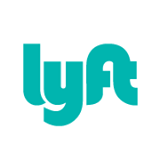It’s temporary pending a second Council vote and further study.
After nearly four hours of testimony and debate, council members gave initial approval shortly after midnight to new rules that would temporarily legalize ridesharing companies such as Uber and Lyft, whose drivers have been providing rides-for-hire for months in defiance of city code. The measure, which could still be amended before a second vote next week, would last for a year while permanent rules are drawn up.
Simply legalizing the ridesharing services, which connect passengers with drivers through a location-based smartphone application, is no trivial matter. As council members discussed a range of details, they kept returning to an essential question: Should the city treat those drivers the same way it treats cabdrivers?
The proposed ordinance would allow ridesharing companies to operate without having to adhere to many of the regulations the taxi industry abides by, such as fares approved by the city, disability-friendly vehicles, city-performed background checks and exhaustive vehicle inspections.
[…]
The council did vote to make some changes to the ridesharing ordinance — for instance a Tovo amendment requiring that ridesharing companies report data about their pricing, rider pick-up and drop-off patterns, and driver information monthly instead of quarterly.
But for the most part, efforts to add stronger regulations failed, either because of a lack of votes or because the council wanted more time to examine such complex issues as insurance requirements before coming back for a second vote. Some council members warned they might change their votes of support when the ordinance comes up for a final vote.
A lot of the same issues as in Houston came up – insurance, background checks, access for disabled riders. One interesting twist on the safety argument was noted by BOR:
Traditional taxi supporters argue TNCs are a public safety hazard because drivers are not required to have a chauffeur’s license, but many supporters of TNCs, including the Austin Police Association believe the public safety priority remains reducing the number of drunk drivers on the road.
That’s definitely a concern in Austin. For the rest of it, they can look at what Houston and plenty of other cities have done. Check back in a year when a new City Council adopts a final ordinance.
UPDATE: The Trib has a story today about the Austin Uber/Lyft debate.


